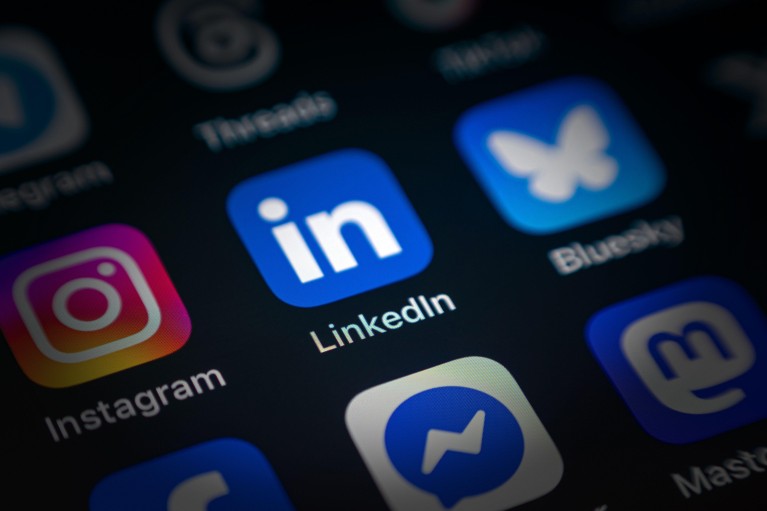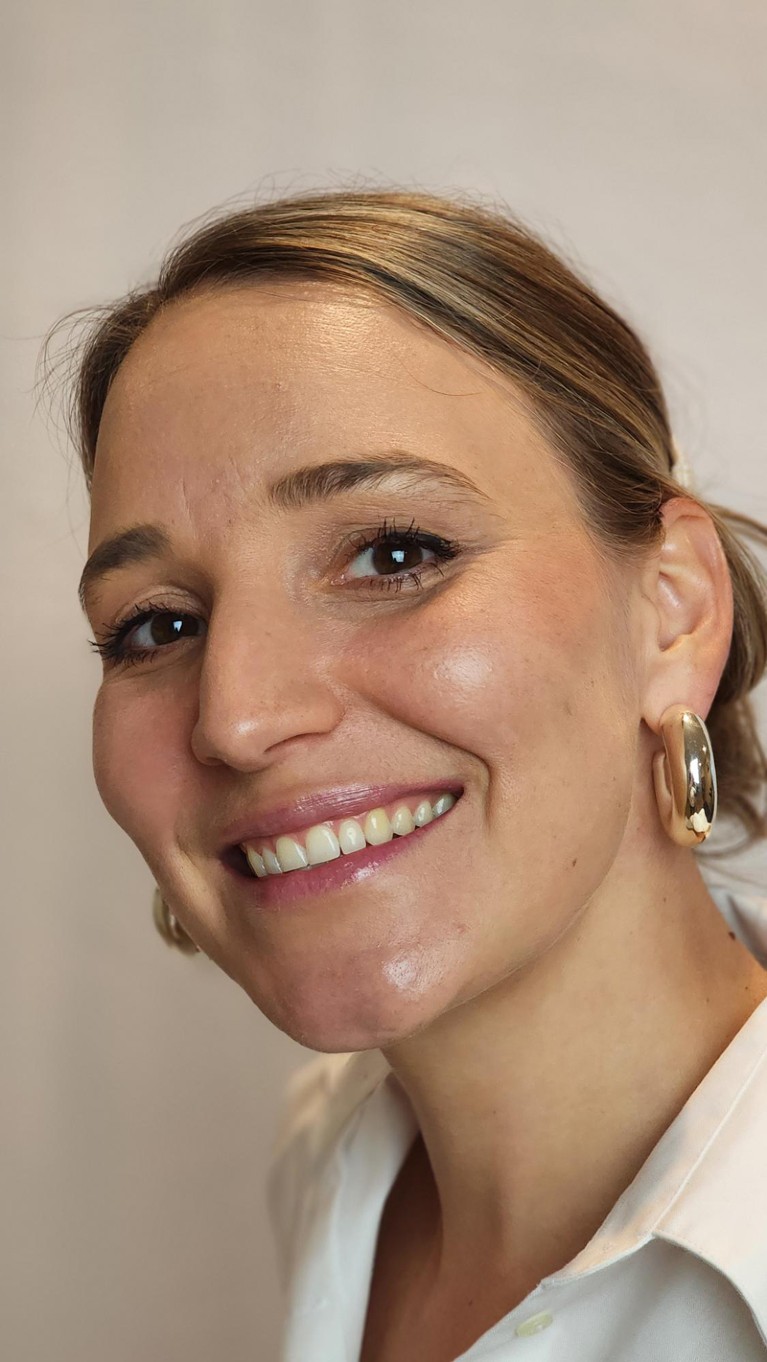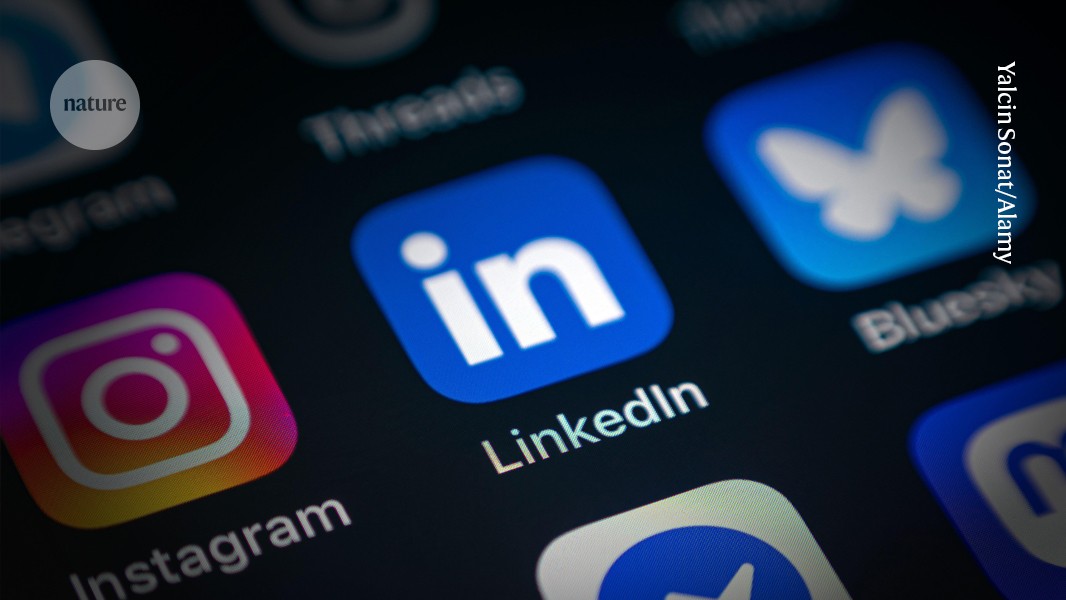
The professional-networking site LinkedIn can be useful for finding like-minded people around the globe.Credit: Yalcin Sonat/Alamy
When I started my PhD in 2018, I thought LinkedIn was for only business people — dry, corporate and dominated by people bragging about their latest achievement. I couldn’t imagine spending time on it. But by the end of my PhD in 2023, the networking site had opened doors I didn’t even know existed. So what changed?
During my doctorate at the Karolinska Institute in Stockholm, I helped to organize careers events for PhD students, inviting speakers who had transitioned into jobs outside academia.
I did this because I had seen so many brilliant scientists leave academia not because they weren’t good enough, but because they were exhausted or felt unsupported. But when they tried to leave, there was no guidance or roadmap.
I realized that, if I cared so much about this issue, maybe I should do something about it, so I founded a company to provide a better support system.
Building a company means building connections, and I had been told repeatedly: ‘Without a network, you won’t get anywhere.’ So I started looking for one — and that’s how I ended up on LinkedIn.
It felt a little scary at first — a global platform with one billion users, but with an open structure in which technically anyone can interact with anyone. I started using LinkedIn to find other company founders and like-minded people. One of these was Angela Priest, a hiring manager with two decades of experience building high-performing teams in industry. We met online and both knew right away that we were a great match. We shared professional values, drive and a deep desire to make things better.
We co-founded Alma.Me in 2024. Our mission is to provide early-career researchers with the tools and knowledge they need to quickly land a job in industry. We do this mainly through suggesting improvements to industry CVs, interview preparation and one-to-one coaching, guiding PhD graduates on how to effectively market themselves to a business audience.
Founding Alma.Me opened the next door. It brought me back to the Karolinska Institute and to its head of doctoral education, Robert (Bob) Harris, who had placed my doctor’s hat on my head during the PhD graduation ceremony six months earlier — a monumental moment for me. I remember thinking: ‘This is the man I need to talk to.’ He’s in charge of doctoral education, so I knew I needed to get him to understand how important career preparation is for new graduates.
But how do you reach someone like him once you’ve left the university? The answer was through LinkedIn. I started by commenting on a few of his posts, and eventually suggested meeting up for a chat over coffee.
That conversation changed everything. Bob agreed with Alma.Me’s mission. He truly cares about students. Thanks to him, Alma.Me now offers a career-development course — accredited by the European Credit Transfer and Accumulation System —at the Karolinska, something I had never imagined would be possible.
At that point, I had already achieved some important goals: launching a business with Angela, providing services to help PhD students to transition into careers and getting our course included at a prominent medical university.
But I didn’t stop there. Bob and I shared a vision for something bigger. Career development was one piece of the puzzle, but we both knew there was more to improve. The question was: how can one or two voices make a difference? We imagined a global collective of people who wanted to rethink the academic ecosystem. So we turned to our networks — especially LinkedIn — and, almost magically, we started finding them.
That’s how the Academic Think Tank (TATT) was born earlier this year. TATT brings together a select group of researchers, educators and entrepreneurs from all corners of the world with a shared vision of rethinking what academia 2.0 could look like: inclusive, sustainable and human.
We met five of our ten TATT members through LinkedIn. Our one selection criterion was simple: you have to care. You have to want to improve things and deeply want to make a difference for the people in the system. Our members span the globe — from Texas to Osaka, Japan. I would never have met these people in real life, but LinkedIn made it easy.

Elena Hoffer used LinkedIn to help build her business Alma.Me.Credit: Angela Priest


